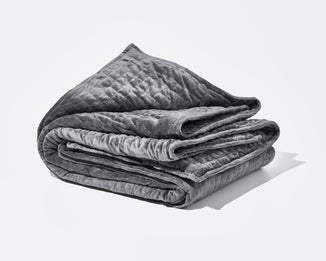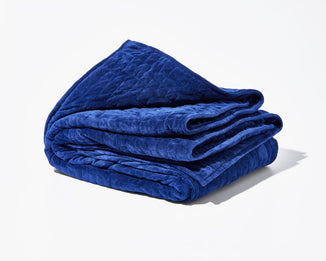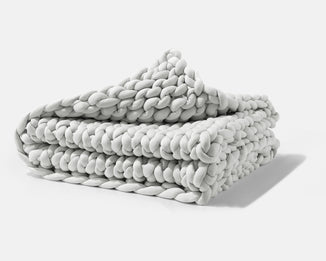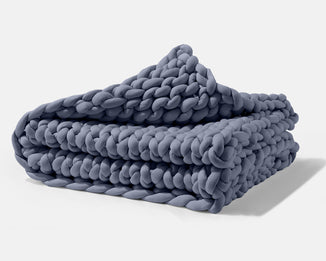
Apr 06, 2021
5 key takeaways from Matthew Walker’s Why We Sleep
By Nicolas Deskos
There are lots of great books out there, but if I could name one that had a measurable impact on the quality of my life, it’s Matthew Walker’s Why We Sleep.
As co-founder of LUMES Eyewear, it can be challenging to balance work with a healthy lifestyle.
Yet, after trying numerous wellness hacks, this book helped me realize that good quality sleep is the foundation to a healthy, fulfilling lifestyle.
I want to share some of my key takeaways from this book, how I am applying them in my own life, and hopefully inspire you to prioritize getting a good night’s sleep.
1. Dreams really are sweet
I’ve always found dreaming to be one of the most mysterious elements of sleep. But I now understand that it’s one of the most important functions my body goes through during a healthy, restorative night’s shut-eye.
When we dream, we are in a deep sleep state called Rapid Eye Movement sleep (REM sleep). Achieving this state is crucial for overall health: it regulates emotional wellbeing, benefits cardiovascular and metabolic health, and also contributes to learning ability and creativity.
As Matthew Walker puts it, “the coolheaded ability to regulate our emotions each day—a key to what we call emotional IQ—depends on getting sufficient REM sleep night after night.”
REM sleep is also crucial for problem solving. We all know the phrase “sleep on it”, to delay making a decision until the next day. Well, it might be based on the functions of REM sleep:
“Sleep cycle by sleep cycle, REM sleep helps construct vast associative networks of information within the brain... We can awake the next morning with new solutions to previously intractable problems”.
As a business founder, a lot of my time is spent making decisions on everything from the day-to-day operations, to the long-term vision of the company. Without restorative REM sleep, it’s much more challenging to think clearly and make sound decisions.
While you should think of your sleep as a complete cycle, there are a few things you can do to extend your REM sleep cycle:
- Keep to the same sleep and wake time. The more regular your schedule, the easier it will be for your body to enter the important sleep stages.
- Avoid beverages at least 1-2 hours before going to sleep. This stops you from having to take a bathroom break during the night and breaking your sleep cycle.
2. Natural sleep is best (hint: put down that drink)
While I’ve never been a big drinker, I’m now careful to leave adequate time between drinking and trying to sleep if I do have an evening drink.
You may think that having a nightcap before bed helps you feel relaxed and makes it easier to get to sleep.
That’s not the case.
Alcohol consumption actually causes fragmented sleep and leads you to wake up many times during the night. Crucially, this blocks you from getting deep restorative Rapid Eye Movement sleep (REM sleep). The same is true for sleeping pills.
Walker explains that alcohol does not help you fall asleep, it just “sedates you out of wakefulness” and can lead to more fragmented sleep. And I think we all know that feeling where we get up for work feeling groggy and under-rested after a night drinking.
If I do drink before bed every now and again, I plan my day to avoid strenuous tasks in the morning. But as Walker advises, it’s best to forgo that nightcap.
3. Night owls vs. early birds: think consciously about your schedule
Are you someone who springs out of bed in the morning raring to go? Or are you more of a burning the midnight oil type of person?
Personally, I’ve always found that I’m at the peak of my productivity later in the day. But I never knew why.
It turns out that ‘early bird’ and ‘night owl’ aren’t just turns of phrase. Sleep researchers have discovered that these different ‘chronotypes’ are genetic and there’s not much you can do to change it.
Here’s how the breakdown looks:
- 30% of people are extreme morning type
- 40% of people are somewhere in between
- 30% people are extreme evening type
That’s why as a natural night owl, I’ve ensured that my schedule allows me to get the REM sleep I need, even if this means starting and finishing my day slightly later.
If you have more of a fixed schedule, try to determine which chronotype you are and then make adjustments to your schedule to accommodate the natural rhythms of your body, such as more cognitively challenging tasks in the morning, or vice versa.
4. Blue light inhibits your sleep hormone
Today we look at screens more than we ever did before. And it’s not doing our sleep any good.
Research shows that rather than making us feel relaxed and restful at bedtime, using bright white screens before bed can actually increase our alertness and disrupt your body’s internal clock.
Blue light is part of the visible light spectrum with the highest energy. Many digital screens emit high-intensity blue light which sends signals to your body that it should be awake.
While the light doesn’t necessarily appear ‘blue’, the short wavelength of blue light inhibits the production of melatonin - the hormone responsible for helping you fall asleep.
The good news is that, there are a few easy ways to ditch the blue light before bed:
- Don’t use devices before bed (preferably 1 hour before) - try cosying up with a book instead.
- Use different lights in the bedroom - dimmer red lights reduce your exposure to blue light.
5. Watch the caffeine intake
If you’re like me, you’ll look forward to your delicious morning cup of coffee.
But now I’m more conscious about the relationship between caffeine and sleep, I make sure I keep most of my coffee consumption to within the morning hours.
Caffeine is actually a psychoactive stimulant which makes us feel more alert. Yet, despite this it also impacts your sleep and makes it more difficult to fall asleep.
The duration of caffeine effects are actually longer than you would expect. If you have a cup of coffee at midday, then a quarter of that caffeine is still active at midnight: “imagine having a quarter of a cup of coffee, just before you go to sleep”.
This can have the effect of making it harder to fall asleep. And, just like alcohol, it blocks deep REM sleep.
Now I only drink one cup of coffee in the morning and I’ve definitely noticed a difference in both the quality of sleep as well as how easy it is to fall asleep.
Nicolas Deskos is the Co-founder of LUMES Eyewear, a blue light blocking glasses company located in Amsterdam, the Netherlands. When he’s not cycling along the canals of Amsterdam, he’s promoting entrepreneurship and healthy hustling.
Your use of this website, its content, and any products obtained through this website is at your own risk. This website, its content, and any products obtained through this website are provided on an “as is” basis, without any warranties of any kind, either express or implied, including warranties of merchantability, infringement of intellectual property, or fitness for any particular purposes. No warranty or representation is made with respect to the completeness, reliability, quality, or accuracy of this website or its content. This website, its content, and any products obtained through this website do not constitute medical treatment and is not a substitute for a medical examination or diagnosis. If you are dealing with a health condition check with your health care provider before using. This website may contain affiliate links that allow us to earn a commission on purchases made through such links. We may accept forms of advertising or sponsorships in connection with this website. There might also be paid topic insertions. We may accept and keep free products, services, and other forms of compensation from others.



